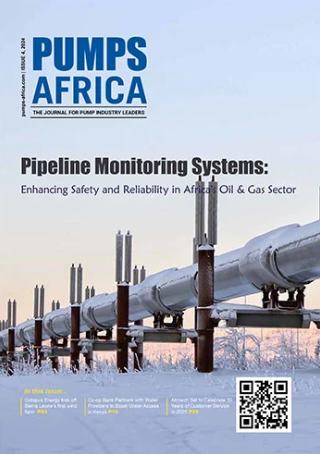As the world grapples with ways to contain the Covid-19 pandemic that has disrupted our normal way of life, several industries across the globe have recorded massive unprecedented losses owing to the outbreak of the disease.
One of the most affected sectors is the events industry. The virus has seen the cancellation of major exhibitions and seminars scheduled to take place in 2020, forcing some event organizers to postpone their events to much later dates or even to the next year.
The World Health Organisation (WHO) declared the coronavirus outbreak a public health emergency of international concern in February 2020. Since then, the number of people infected has risen significantly across the world with Africa transcending to the peak in the months of June and July as the recorded cases seem to be increasing each day.
Just like the rest of the world, the virus is already affecting the events sector in Africa in various ways.
Now let’s examine the real impact of Covid-19 pandemic in Pumps Industry Events:
Watrex Expo Suspension
The 5th Leading Trade Fair for Water & Wastewater Treatment, one of the biggest annual water industry events in Africa, has cancelled the event scheduled for 22-24th March in Egypt to a later date subject to the evolution of the virus.
READ: Experts discuss future of borehole water industry in Kenya – Webinar
A statement released by the organisers reads: “WATREX EXPO would be postponed from its scheduled date to another alternative date in 2020 once things return to normal.”
Egypt, just like many countries across the world temporarily suspended all major gatherings including exhibitions. Governments however laid out public interaction measures and guidelines including social distancing and wearing of masks in anticipation that things will return to normal.
Will things ever return to normal? is a question lingering on many people’s minds but one for which there is no definite answer.
The Water Show Africa new dates
The Water Show Africa on the other hand organized by Terrapinn and that was expected to take place in March 2020 has been pushed to 20 – 21 August 2020.
This is in spite of South Africa’s imposed travel ban on foreign nationals from high-risk countries, a factor that is likely to affect the attendance if not eased by November. But majority of key participants who are significant to the event’s success, may be unable to travel if restrictions in their home countries are upheld till the given event dates.
The cancellations and postponement of events due to coronavirus concerns is a clear indication of the fact that the outbreak is affecting the events industry not only in Africa but also worldwide.
READ: Mechanical Ventilator components synonymous with pump industry
Some events however have opted to keep to the scheduled date but change the location to a safer area with controlled attendance.
Reduced participants
The fear of the coronavirus is likely to impact attendance at the events that do take place now and in the future. For example, exhibitions will witness reduced number of visitors than in previous years, and some exhibitors will or have pulled out from events.
Financial implications
The financial implications of the outbreak on the events industry has been drastic, as all stakeholders are affected in various ways. For many organizations, either attending or exhibiting in events and expos is an important part of business, providing the opportunity to generate leads and land new customers, and in some cases seal new business deals.
Event Organisers are also negatively affected by the last-minute cancellations, rescheduling, or other such changes. Venues providers and vendors working in the event sector are also likely to be impacted by the predicted decline in events, attendance, and bookings.
The “new normal”
Pundits have argued that the corona virus is likely to stay longer than expected and that the human ways of doing things will be disrupted for life or at least for a very long time before things go back to normal.
The “new normal” referring to change in society, particularly in relation to business and economics, now dictates that people must adjust their ways of doing things, and businesses must adapt to the changes caused by the pandemic and adopt new strategies to survive.
Flexibility and adaptability to change is the “new normal” that events professionals must adopt to survive. Some measures for minimising the negative effect are flexible venue bookings and vendor arrangements, as well as establishing clear cancellation policies for exhibitors or attendees.
Virtual events
With the advancement in technology, the development of virtual reality (VR) and Audio Visual (AV) technology has increased capabilities to enable the organization of more immersive remote attendance options. Remote options will become increasingly important in the future, offering attendees the opportunity to experience events without the health concerns associated with travel and crowds.
READ: Innovative handwashing solution launched to help fight Covid-19 in Africa
Some event planners have already made it a priority to offer various virtual attendance options, now popularly known as Webinars to connote seminars held in the world wide web, as well as live streaming via the available social media platforms.
Safety precautions
Safety should be the utmost priority for any events taking place during this period, and event planners have a crucial role to play. Some safety measures include:
- Mandatory temperature screening for the event attendees and exhibitors, as well as regular temperature checks for staff and volunteers.
- Hand sanitisers and face masks available, this may include installing sanitization booths at the main entrance
- Offering educational sheets, making sure attendees & exhibitors are familiar with the WHO guidelines for protecting themselves and others
- Creating a medical unit, with medical supplies, available doctors, and isolated spaces for anyone who is potentially infected
- Establishing clear communication between attendees and organisers, implementing strategies for informing attendees of any concerns or issues, as well as ensuring they know whom to contact if they are worried, they might be infected
- Taking additional sanitation and disinfection measures: enhanced cleaning, more washing points etc.
Even as the event industry tries to contend with the new normal, experts think that people will still need physical interaction.
“We want to be part of a tribe of other humans. That is baked into our neuroscience. Our brains thrive around people,” says David Neerman, Best selling Author and Public speaker.







